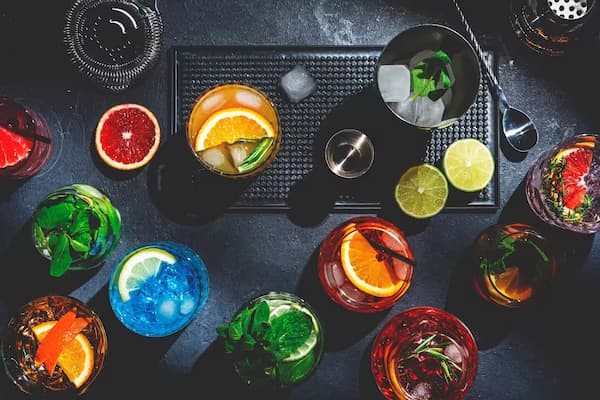Cream
About Cream
In cocktails, cream serves several purposes. It can balance acidic or sharp flavors, add a luxurious mouthfeel, and create a visually appealing layering effect in some drinks. Classic cocktails like the White Russian, Irish Coffee, and Brandy Alexander rely on cream to achieve their signature tastes and textures. When using cream, it's essential to consider its richness and how it will interact with the other ingredients to achieve the desired flavor profile and consistency. Light shaking or stirring is often enough to integrate cream into a drink, but vigorous shaking can also create a frothy texture, as seen in cocktails like the Ramos Gin Fizz.
Q&A
What is the history of using cream in cocktails?
The use of cream in cocktails dates back to at least the 18th century, when milk and cream started to be used in various mixed drinks to soften the harshness of spirits and add richness. One of the earliest recorded recipes featuring cream is the Alexander, which was popularized in the early 20th century. Over time, cream became a staple in dessert cocktails and luxurious drinks, accompanying the rise of sophisticated bartending and mixology.
What types of cream are used in cocktails and how do they differ?
In cocktails, the most commonly used types of cream are heavy cream (also known as double cream) and light cream. Heavy cream, with a fat content of around 36-40%, is thicker and richer, making it ideal for dessert cocktails and those requiring a dense texture. Light cream, on the other hand, has a fat content of 18-30% and is preferred in cocktails that need a lighter, smoother consistency. The choice between heavy and light cream depends on the desired richness and texture of the cocktail.
How should cream be incorporated into cocktails to achieve the best texture?
To incorporate cream into cocktails effectively, light shaking or stirring is often sufficient for achieving a smooth consistency, especially if the aim is to gently mix it with other ingredients without creating too much froth. For cocktails where a frothy, airy texture is desired, such as in a Ramos Gin Fizz, vigorous shaking is necessary. Chilling the cream beforehand can also help it integrate better and contribute to a more refreshing cocktail experience.
Are there any dairy-free alternatives to cream that can be used in cocktails?
Yes, for those looking for dairy-free alternatives, there are several options that can mimic the texture and richness of cream in cocktails. Coconut cream is a popular choice for its thickness and slight sweetness. Other alternatives include almond milk creamer, soy cream, and oat milk creamer, each adding a unique flavor profile and consistency to the drink. When substituting, consider the fat content and flavor of the alternative to best match the original cocktail recipe.
What are some classic cocktails that feature cream, and how is it served?
Classic cocktails featuring cream include the White Russian, with cream floated over vodka and coffee liqueur; the Irish Coffee, where cream is gently floated on top of coffee and whiskey; and the Brandy Alexander, where cream is mixed with cognac and creme de cacao. In serving these cocktails, the cream can either be mixed in for a smooth texture or carefully floated on top for a layered effect, depending on the drink's traditional presentation and desired visual appeal.
Ingredients like Cream
Other Kitchen cupboards
How it works
Easily create your bar from the ingredients you have at home, and we'll show you what you can make with the ingredients you have to hand.
Once you've added this ingredient head to your My bar page and fill up everything else you have.
We'll also show you cocktails that can make by substituting what you have for one of the ingredients you don't, riffing on the original. Now go forth and create something delicious!


-preview-large.jpg)

























-preview-large.jpg)















